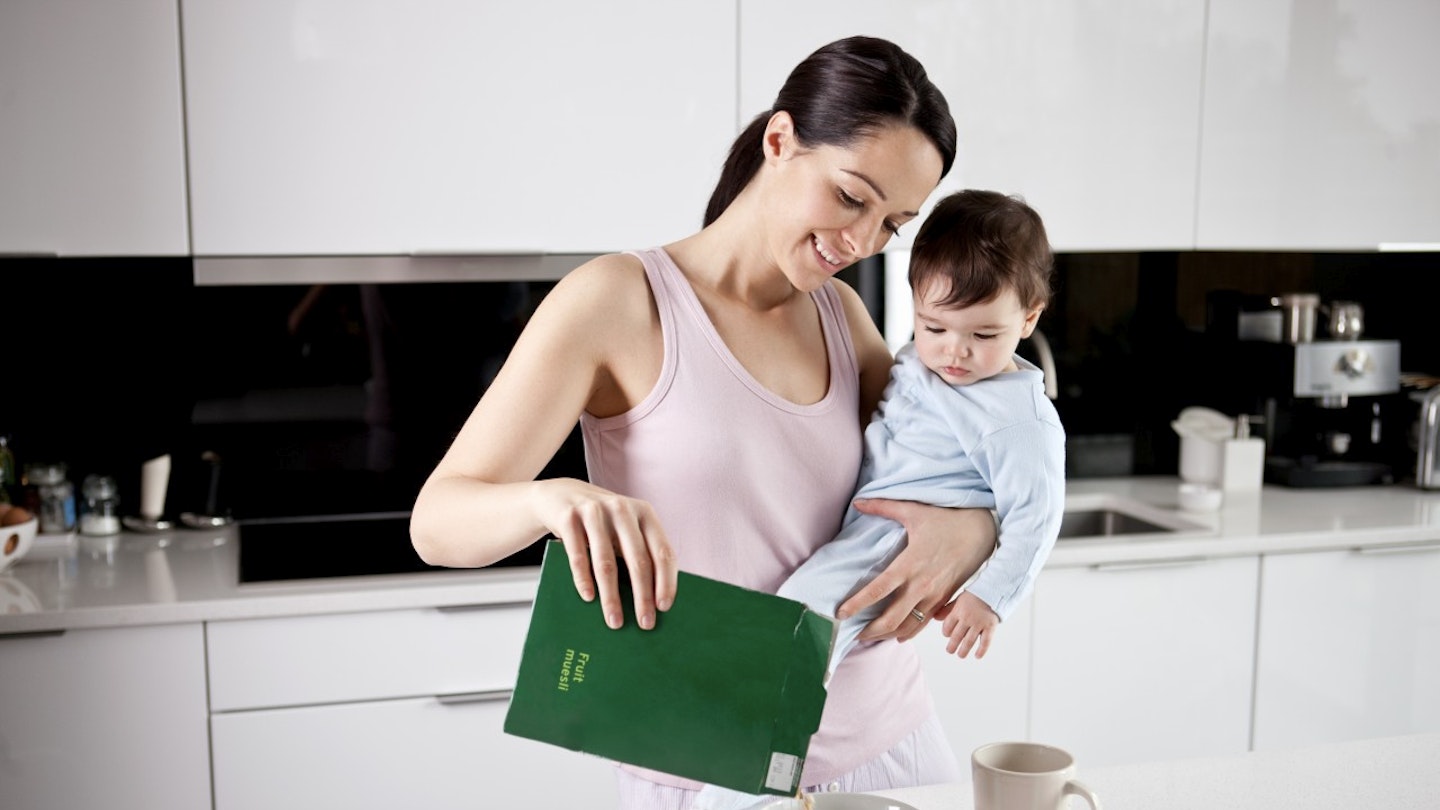Wondering why you can’t shift the baby weight? Making more of your meals could actually help…
Too knackered to make your breakfast, so you don’t eat any? Then notice that half packet of Hobnobs has disappeared…
When you’ve got new mum sleep deprivation, it’s normal that you slip down the priority list. ‘Baby gets a nutritious bowl of porridge with berries while you grab a cup of tea,’ says nutritionist Amanda Ursell. ‘And when it’s nap time you eat something quick.’
Amanda says that many mums become ‘people pleasers’ and put everyone else first as they try to be the perfect mum/wife/employee. Meaning your goals (including those for weight loss) slip down the priority list.
What you can do
Make mealtimes about the family. When you make your baby’s breakfast, make your own too, and sit down with her to eat it.
If you find you haven’t enough time to focus on a proper lunch, break your meals down.
‘Eat little and often, but not in the way you have been,’ says personal trainer James Duigan. ‘Just because you don’t have time to prepare meals, doesn’t mean the meals you do eat have to be pre-packaged.’
Have five smaller meals a day, including energy-boosting smoothies. ‘It takes no time to whizz up two handfuls of berries with 100ml natural yoghurt, 100ml rice milk and cinnamon,’ he adds.
Also try our tips for boosting the health factor of meals for the whole family.
Your secret for success
‘Keep healthy snacks with you at all times,’ says Amanda. ‘Nuts, bananas and apples are all good options.’
If this doesn’t sound like you, give our weight loss quiz another whirl to find out just what’s getting in the way of your post-baby body shape up.
